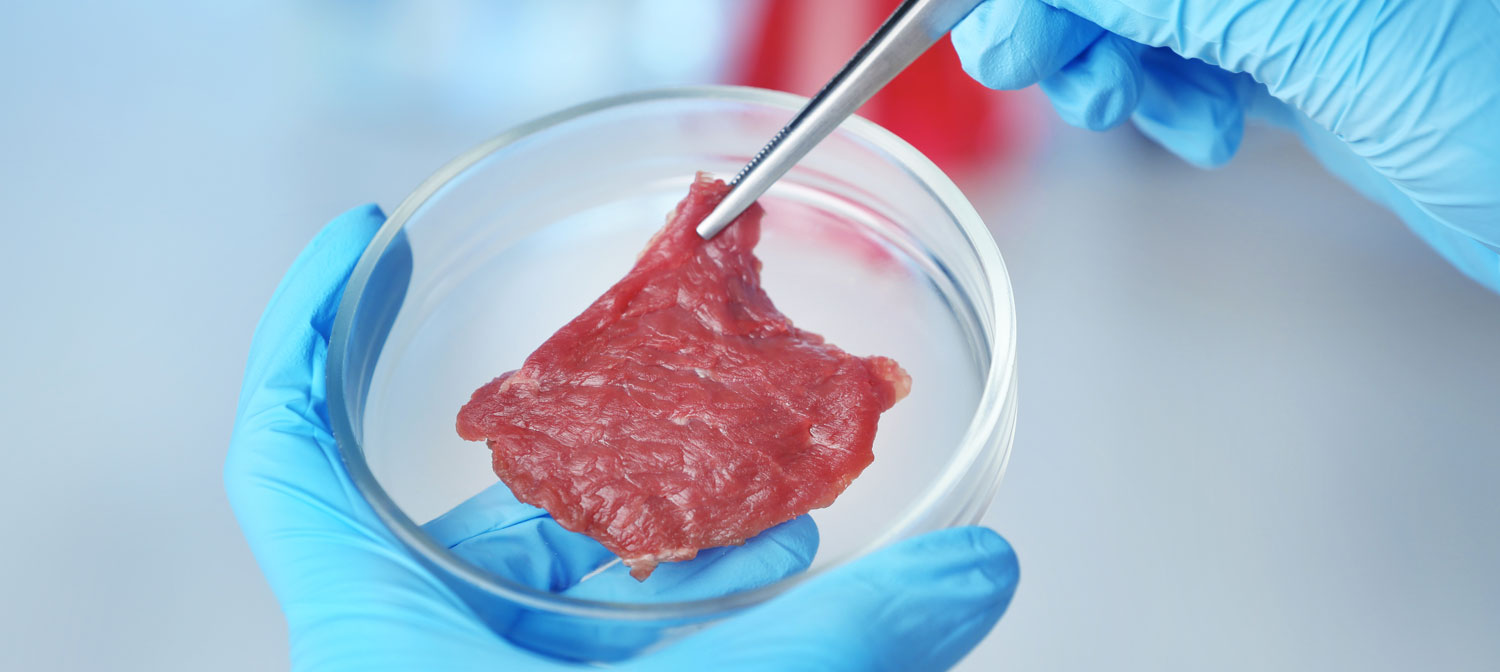
What the Heck is Clean Meat?
Clean meat also called cultured meat, and in vitro meat is meat, simply grown in cell culture, and is produced by using existing tissue via engineering techniques (1). The concept is similar to clean energy, where food scientists, animal-welfare activists and innovators in the food industry are talking about how to achieve “future meat” through innovative technology and alternative production methods that are more environmentally friendly, decrease the risk of foodborne pathogens and lessen waste. Curious? Let’s explore – what the heck is clean meat?
Why Clean Meat?
Environmental
- A study that was published in the journal of Environmental Science and Technology (2) predicted how cultured meat impacts the environment. The results showed that, compared to conventionally produced meat, cultured meat will require: 7 to 45% lower energy use, 99% lower land use, 82 to 96% lower water use, 78 to 96% lower greenhouse gas emissions.
Food Safety
- Clean meat is produced in a sterile environment; therefore, it could do the following: eliminate harmful foodborne pathogens, such as Salmonella, and Escherichia coli, remove exposure to hazardous products, such as pesticides and even antibiotics, and reduce diseases associated with livestock farming that humans can contract for example swine flu, and mad cow disease (3-4).
Economical
- The production of cultured meat has certainly come a long way, when the first lab-grown burger was introduced (2014) it was selling for $44 per pound, now the cost is around $11.36 per pound (5).
Who’s Experimenting in the Lab?
It seems as though clean meat’s popularity stems from how it’s being marketed. Almost every magazine and news outlet has been talking about this “future meat”, and how two billionaires, Richard Branson and Bill Gates, have invested $17 million dollars in Memphis Meats (6).
According to Memphis Meat’s website (7), the team loves meat; however, they do not love how meat production nowadays is bad for: the environment, economy, and human health. Therefore, they strive to produce a product that is equally as delicious, as well as better overall. Other clean meat players include Hampton Creek based in the USA, SuperMeat, an Israeli biotech and food-tech startup and Mosa Meat based in the Netherlands.
What’s Next?
Disrupting animal agriculture and the meat industry will be interesting. Many questions remain: Will the idea of cellular agriculture be considered unnatural by the general public? Will the products be comparable with traditional meat’s appearance, taste, texture and smell? How quickly can clean meat be scaled and commercialized? There are also proposed challenges from researchers; technological and scientific issues ranging from identifying the best stem cell source to finding a cost-effective growing medium.
Regardless, one thing’s for sure: people across a variety of industries are talking about clean meat, investing in it, and experimenting with the best practices to grow a future meat that could be on your plate in the next few years!
I’d love to assist your company to get into the latest food trends or speak at your upcoming event to share my experience as a food expert and entrepreneur. Click here to learn more.
References
- New Harvest website. Retrieved from: http://www.new-harvest.org/faq#/what_is_cultured_meat
- Tuomisto H, Teixeira de Mattos MJ. Environmental impacts of cultured meat production. Environmental Science and Technology. 2011; 45: 6117-6123.
- Kadim I, Mahgoub O, Baqir S, Faye B, Purchas R. Cultured meat from muscle stem cells: A review of challenges and prospects. Journal of Integrative Agriculture. 2015; 14(2): 222-233.
- Hultin G. Lab-grown meat: Exploring potential benefits and challenges of cellular agriculture. Food and Nutrition. 2017. Retrieved from: https://foodandnutrition.org/march-april-2017/lab-grown-meat-exploring-potential-benefits-challenges-cellular-agriculture/
- Shoemaker N. Price of lab-grown burger falls from $325k-$11.36. The Big Think. http://bigthink.com/ideafeed/answering-how-a-sausage-gets-made-will-be-more-complicated-in-2020
- Marks G. Why are Bill Gates and Richard Branson investing in meat that costs $18,000 a pound? The Washington Post. 2017. Retrieved from: https://www.washingtonpost.com/news/on-small-business/wp/2017/08/25/why-are-bill-gates-and-richard-branson-investing-in-meat-that-costs-18000-a-pound/?utm_term=.0446f4d2eef9
- About Us. Memphis Meats website. Retrieved from: http://www.memphismeats.com/about-us/
Copyright © 2018 Jane Dummer | All Rights Reserved

